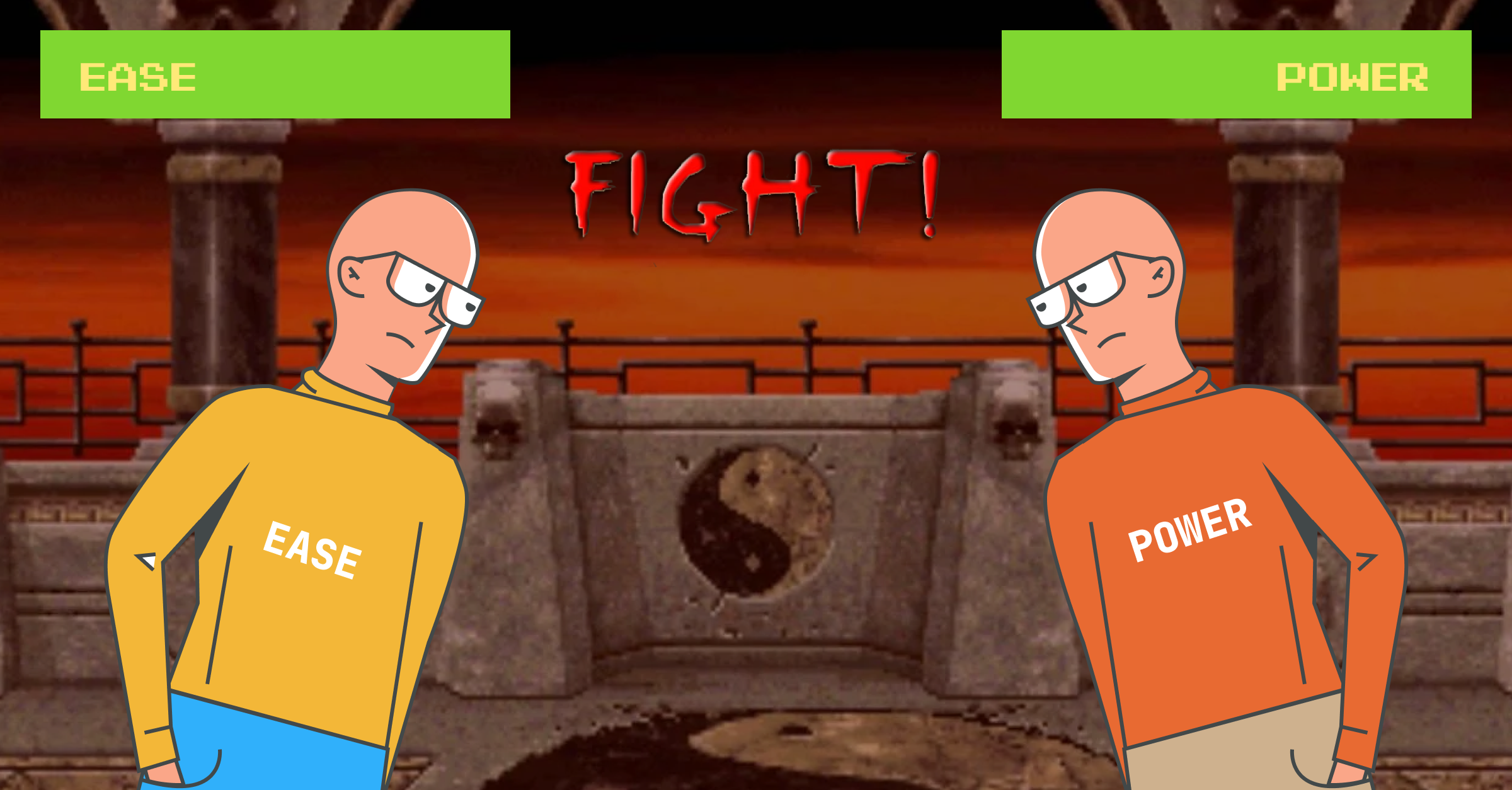
One of the biggest challenges of creating a new language is balancing “Power” and “Simplicity”.
By “simple” language, we mean a language with minimal rules.
By “powerful” language, we mean one that allows you to elegantly solve a wide range of problems. “Powerful” language is convenient, concise, and readable.
At first glance, there appears to be no clear contradiction between “power” and “simplicity”, but try creating a new language and you will immediately understand this dilemma!
Here's the thing: in order to make a language more powerful, we must increase the number of rules – that is, increase its “complexity” or, in other words, decrease its “simplicity”.
For example, let's take arithmetic. Assume we only have one addition operation. Then we can write “2 times 5” as “2 + 2 + 2 + 2 + 2”. It's simple, but not elegant. Now let’s introduce a new “rule” – the multiplication operation. We can now write it like this: “2*5”. It turned out much better, but we lost the simplicity because we added a new rule.
The dilemma is that a “simple” language is much easier to learn, whereas a “powerful” language is much easier to live with. The more powerful a language becomes, the more difficult it is to attract new users. However, the more simple our language is, the more our users will be disappointed when trying to solve complex problems while using it.
It is unlikely that a formal algorithm could be developed to help resolve this issue. It seems that the search for the right balance appears to take place somewhere in the realm of intuition and subconsciousness. So far, we've relied on instinct while developing our language.
The first version of the language will be released soon! Shortly after the release, we will share some interesting cases where we had to painfully choose between “power” and “simplicity”. We guarantee that when developing new versions of the language, we will involve our users in resolving such issues, and we will definitely take your feedback into account.
Welcome to the world of JSight!